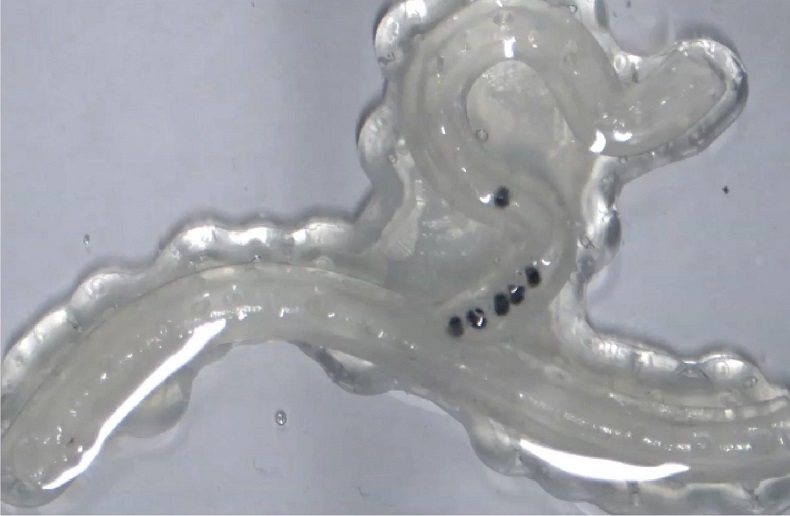New Technology for Sampling Body Liquids in Confined Spaces to Enable Early Cancer Detection
Posted on 17 Sep 2024
Body fluids—such as blood, pancreatic juice, urine, and mucus—contain valuable information about chemical composition, biomarkers, bacterial colonies, and other key components. This information aids researchers in understanding the mechanisms of various diseases, including cancer, and monitoring patients' health. Wireless mobile robots at the millimeter scale have shown promise in navigating confined spaces to collect these fluids due to their small size and agile movement. However, these devices have lacked the ability to sample liquids effectively because of the absence of efficient triggering and sealing mechanisms at such small scales. Researchers have now addressed this gap by developing technology for sampling body fluids in narrow and complex spaces, which could enable early detection of diseases like cancer.
A research team at Vanderbilt University (Nashville, TN, USA) has developed millimeter-scale soft capsules made of hydrogel-and-elastomer hybrids, which are controlled using external magnetic fields. These devices, according to the researchers, can be delivered and retrieved via a thin catheter and are capable of navigating tubular structures that are otherwise inaccessible to catheters. The soft capsules are coated with a specialized wetting property that enables them to efficiently pump liquids inside. As reported in Science Advances, the integration of on-demand triggering, sampling, and sealing mechanisms, along with agile group locomotion, allowed the team to demonstrate precise control of these soft capsules. They successfully navigated and sampled body fluids in a phantom and ex vivo animal organ, guided by ultrasound and X-ray medical imaging.

“The millimeter-scale soft capsules introduced in this work open avenues for minimally invasive and targeted liquid biopsy in confined spaces such as the pancreas duct, enabling early disease diagnosis and providing insights into disease development through the sampling, retrieval, and analysis of abundant chemicals within organs,” said Xiaoguang Dong, assistant professor of mechanical and biomedical engineering at Vanderbilt University, who led the research.
Related Links:
Vanderbilt University








 Analyzer.jpg)





